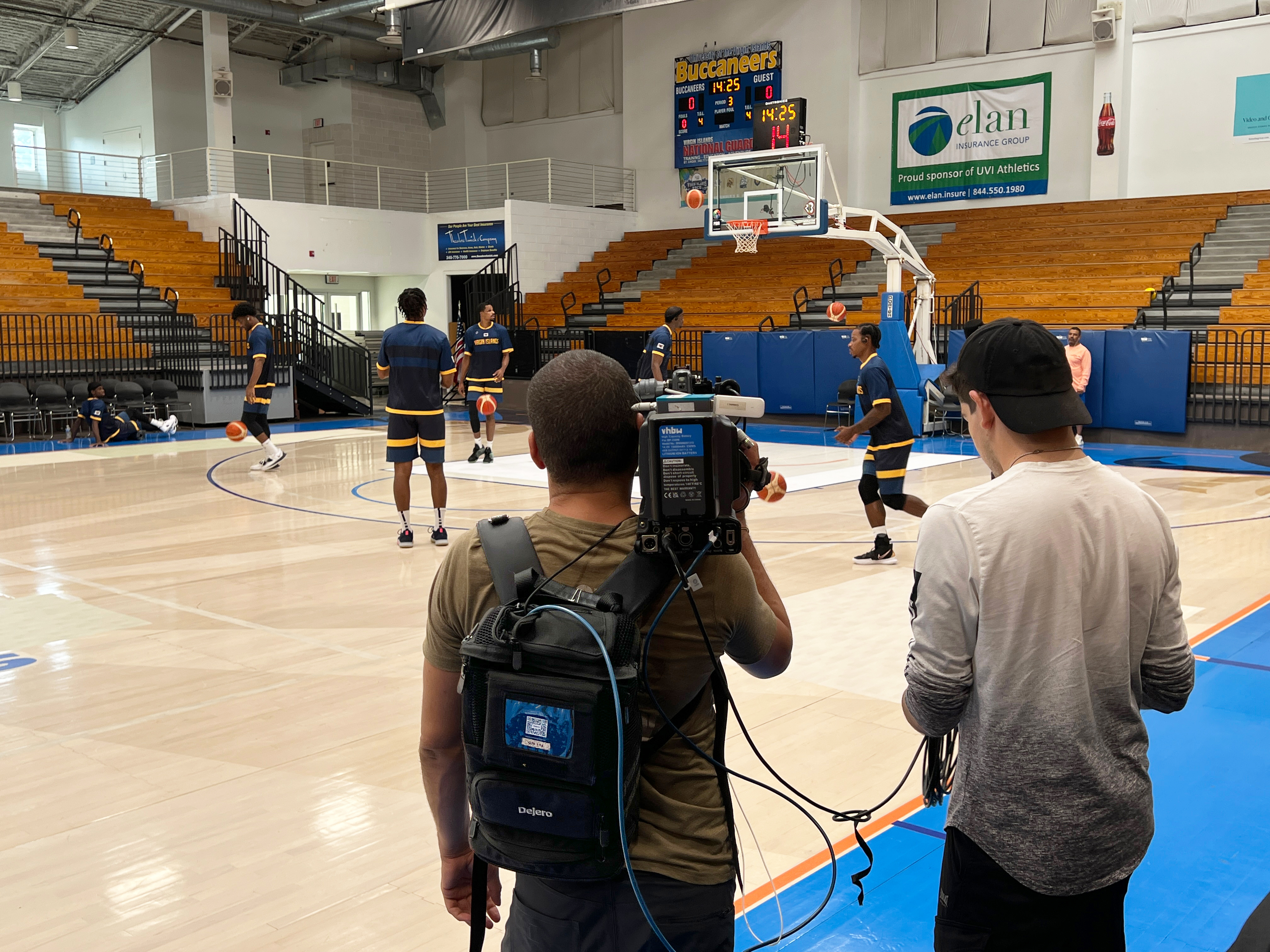Quality Relied on Dejero for FIBA Basketball World Cup 2023 Qualifier Games
The innovative remote production using Dejero EnGo mobile transmitters and WayPoint receivers saved significant set-up time and costs

WATERLOO, Ontario, Canada—Dejero has announced that the Spanish production company Quality used Dejero’s technologies to provide live coverage of the FIBA Basketball World Cup 2023 Qualifiers in the Bahamas and the U.S. Virgin remote islands.
For the innovative remote production, which produced significant time and cost savings, nine Dejero EnGo mobile transmitters were deployed for the multi-camera productions, while three Dejero WayPoint receivers located at Quality’s hub and master control room in Madrid received the camera feeds and packaged content, which were then uplinked via satellite for global distribution.
Two of the EnGo devices were utilized for fill and key graphics for FIBA to package content at the venue and send on to Quality’s Madrid-based hub, Dejero reported.
The video transmission devices used by Quality feature Dejero’s Smart Blending Technology, which aggregates multiple IP connections, including wired (broadband, fiber) and wireless (3G/4G/5G, Wi-Fi, satellite) networks. The result is high-speed, reliable internet connectivity, which allows them to seamlessly transmit broadcast-quality live video while reducing costs with production logistics, the companies said.
“As the EnGo blends cellular networks from multiple carriers, we did not have to rely solely on the venue’s limited connectivity or worry about the logistics and costs of getting a satellite truck to the island,“ explains Pablo Reyes, chief production officer and partner at Quality.
“With the FIBA Qualifier games live coverage, we have demonstrated once again that by using Dejero, we can literally go live from even the remotest of locations, achieving the kind of resilient connectivity that is required to transmit live high-quality video of major sporting events,” Reyes continued.
Using a lean remote production model, Quality needed only to fly the EnGo transmitters and cameras out to St Thomas. Because the devices are easy to operate and don’t require a complex set up, the camera operators and crew were ready to go live within 48 hours of landing. The producers, directors, graphics operators and technicians remained in Madrid, as the EnGo enabled the live transmission of camera feeds without interruption, back to the hub for packaging and distribution, the companies explained.
The professional video industry's #1 source for news, trends and product and tech information. Sign up below.
The EnGo intercom feature providing two-way, full-duplex voice communication between the hub and field personnel was crucial for live interactions during the FIBA Qualifiers productions. A microphone at the hub was connected by an XLR audio cable to a WayPoint receiver, so that the director could communicate with camera operators using smartphones connected to the EnGo. The EnGo also has AES 256 encryption to keep audio and video data secure when transported over public internet links, the companies said.
This workflow represents a saving of thousands on hotel bills, airfares, logistics and expenses, let alone the time it takes for a full production crew to travel there and back.
If Quality were to have used a satellite truck for remote production, it would have taken at least 10 days to cross the Caribbean Sea by private sea freight, with the added logistical challenges of customs and insurance.
“By using Dejero, we save between 60 and 75 percent of the set-up time and cost of a traditional workflow,” concluded Reyes.
Quality uses Dejero connectivity solutions to support top quality remote productions for over 50 broadcasters and sports federation customers worldwide, including International Federations, such as FIFA, FIBA, FINA, IWF, Rugby Europe and various world sports committees, plus many private sports promoters such as Grises Humacao and Peter Auto, on top of 35 Spanish Federations.
George Winslow is the senior content producer for TV Tech. He has written about the television, media and technology industries for nearly 30 years for such publications as Broadcasting & Cable, Multichannel News and TV Tech. Over the years, he has edited a number of magazines, including Multichannel News International and World Screen, and moderated panels at such major industry events as NAB and MIP TV. He has published two books and dozens of encyclopedia articles on such subjects as the media, New York City history and economics.

